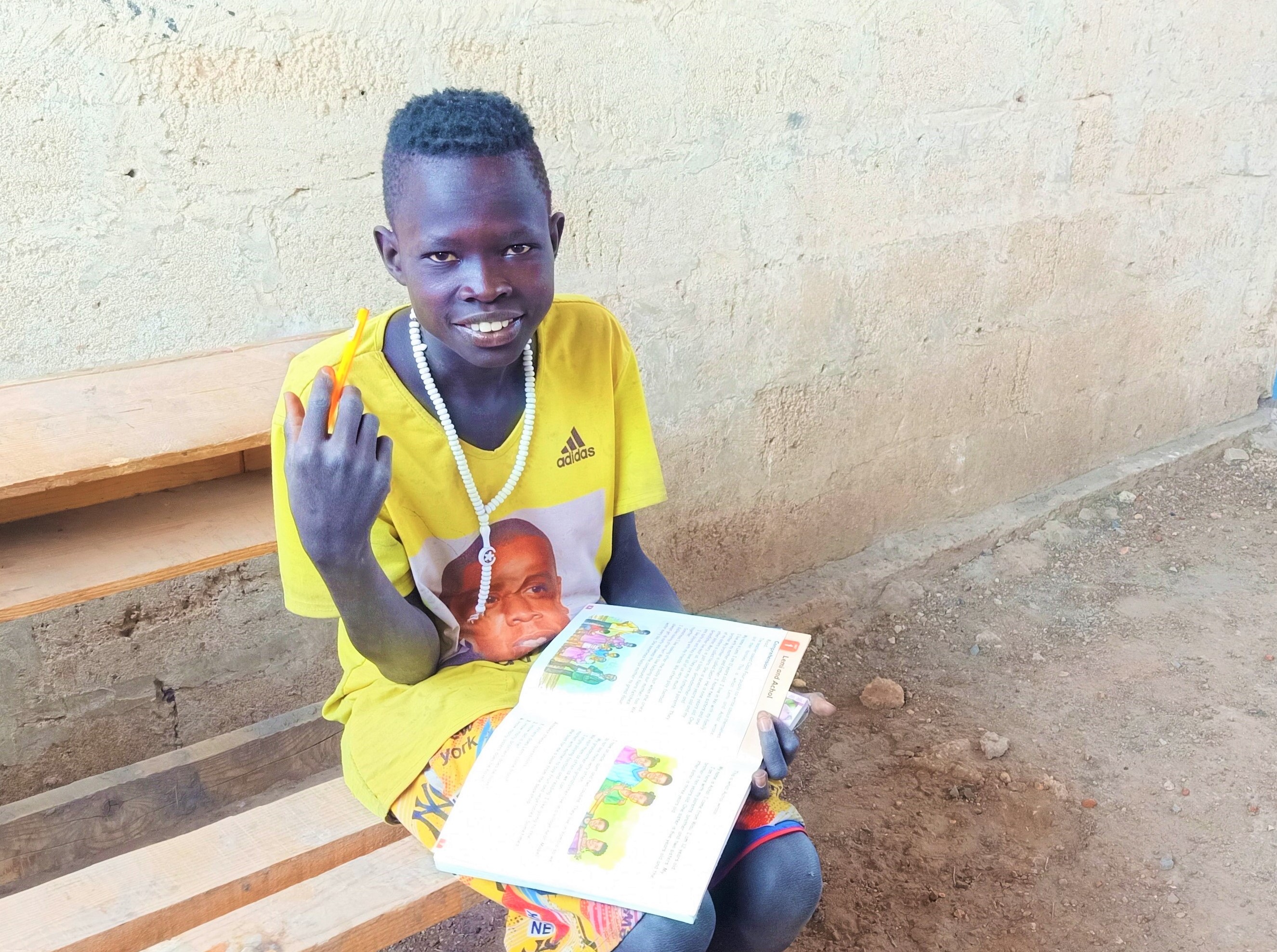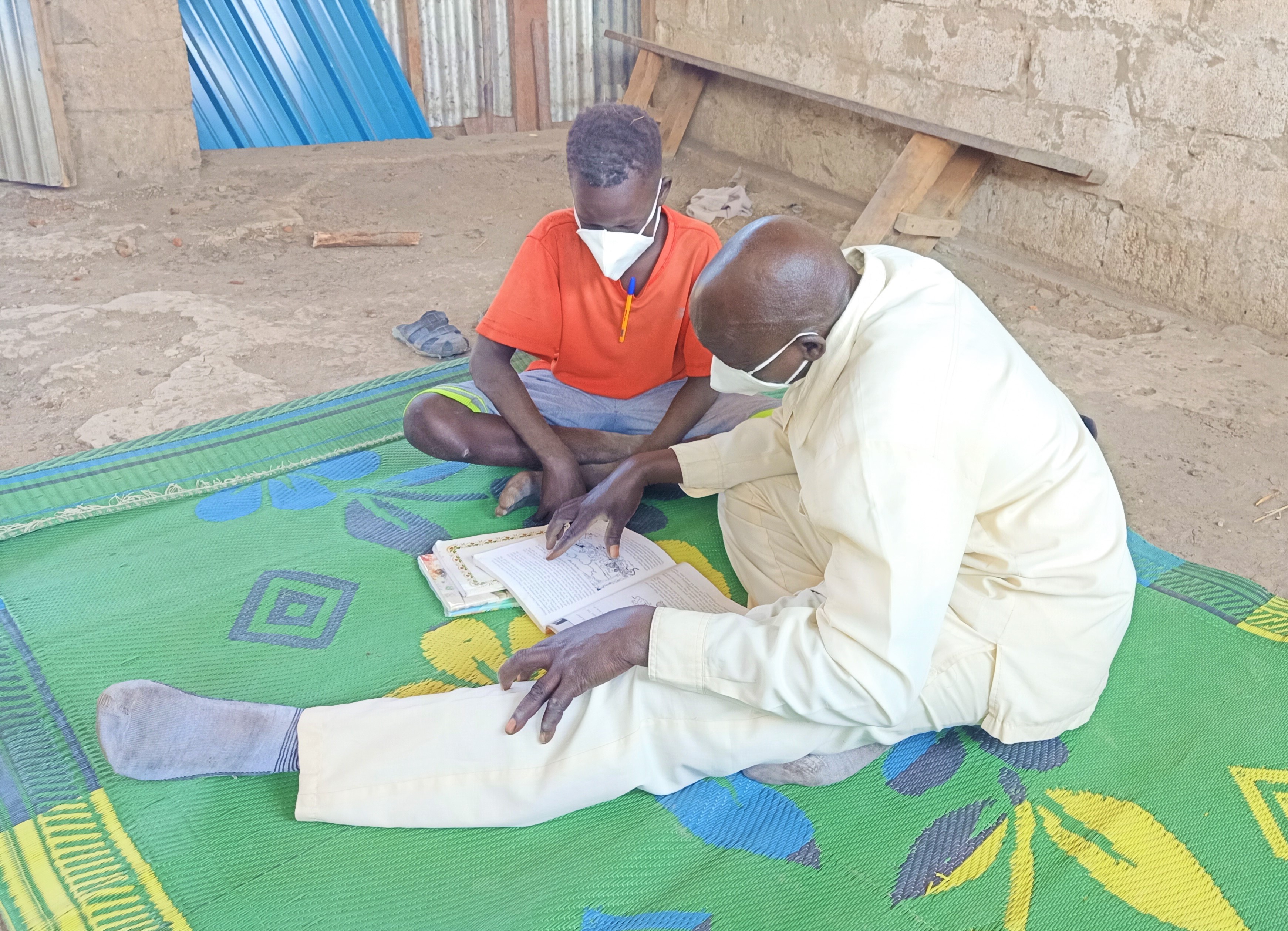Melut County in South Sudan is home is home to many families living in displacement camps after being forced to flee their homes following conflict during the country’s civil war. Coronavirus lockdowns meant that many thousands of children were out of school, in an area already grappling with underdeveloped education infrastructure.
World Vision supports children in schools of Melut County in South Sudan’s Upper Nile State. The County is home to many families living in displacement camps after being forced to flee their homes following conflict during the country’s civil war that erupted in 2013 and 2016.
The impact of Coronavirus and subsequent lockdowns pushed more than 2 million children in South Sudan out of schools, adding to the 2.2 million already not in school and increasing the likelihood of the already high drop out and early marriage rates. Apart from exam year students who returned to school in October 2020, schools remained closed from March 2020, finally reopening to all years in April 2021.
Thanks to funds raised by the Irish Emergency Alliance coronavirus appeal World Vision has provided facemasks, hand sanitizers and handwashing soap to 12 schools reaching nearly 900 students and nearly 100 teachers in Melut County. 140 students (90 girls & 50 boys) students were also provided with geometry sets, textbooks and school materials.
During lockdown, which included the closure of schools, World Vision also helped nearly 1,200 school children continue their education from home by providing them with pens, pencils, rubbers, rulers and exercise books. World vision also trained nearly 100 teachers provide distance learning and provided them with a stipend for three months (6,560 SSP or 45$) to support the children studying from home.
I was excited to study again.
14-year-old Miyen lives in an internal displacement camp in Melut County. He was forced with his family to flee their home in eastern Nile state following fighting.
Miyen was disappointed when schools were closed in response to measures that Government put in place to reduce the spread of coronavirus. “One year was wasted on playing around and fishing on the river. Life became even more difficult with lack of food rations as a result of the lockdown”. Miyen was among the first to be enrolled in the home-based learning. “I was excited to study again.”
We could study and catch up with the syllabus until the schools re-opened.
Gieth is also 14 years old and lives in a displacement camp in Melut County after having to flee the conflict in 2014.
“The home based learning was good because it helped those of us at the camp with no access to internet, TV and radio to learn at home. We could study and catch up with the syllabus until the schools re-opened.”
The home-based learning helped to prevent child marriage.
Rebecca is a 38-year-old mother of four, living in a displacement camp in Melut. “As a parent, nothing makes me happier than securing the future of my children. I am happy the home-based learning ensured children were still in educatiion, especially as it prevented girls being forced into marriage, which had already started within the camp.”



